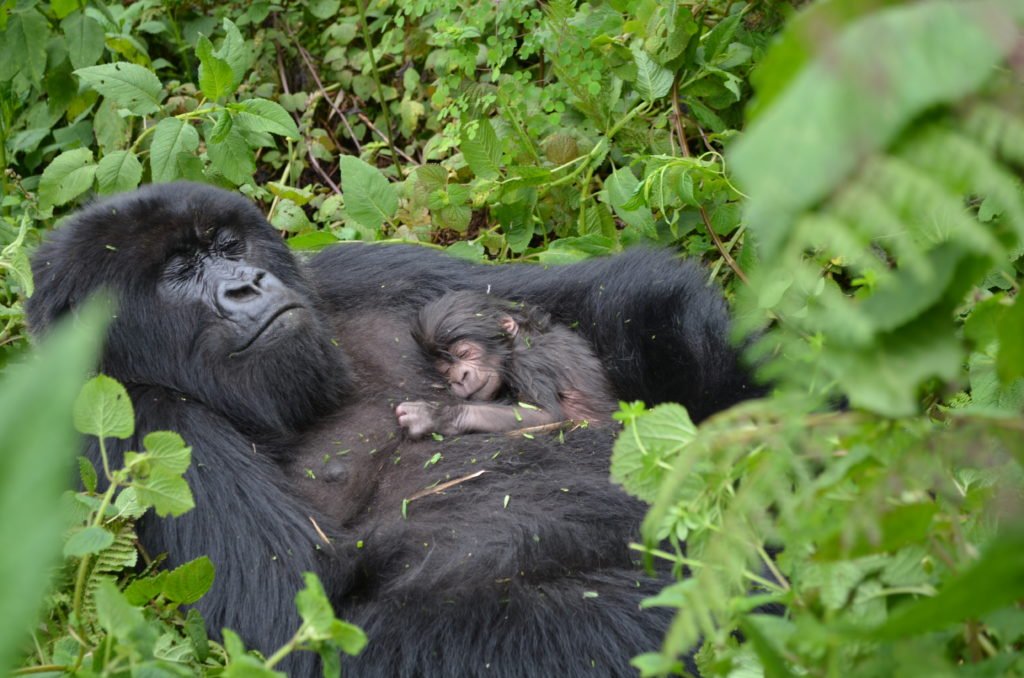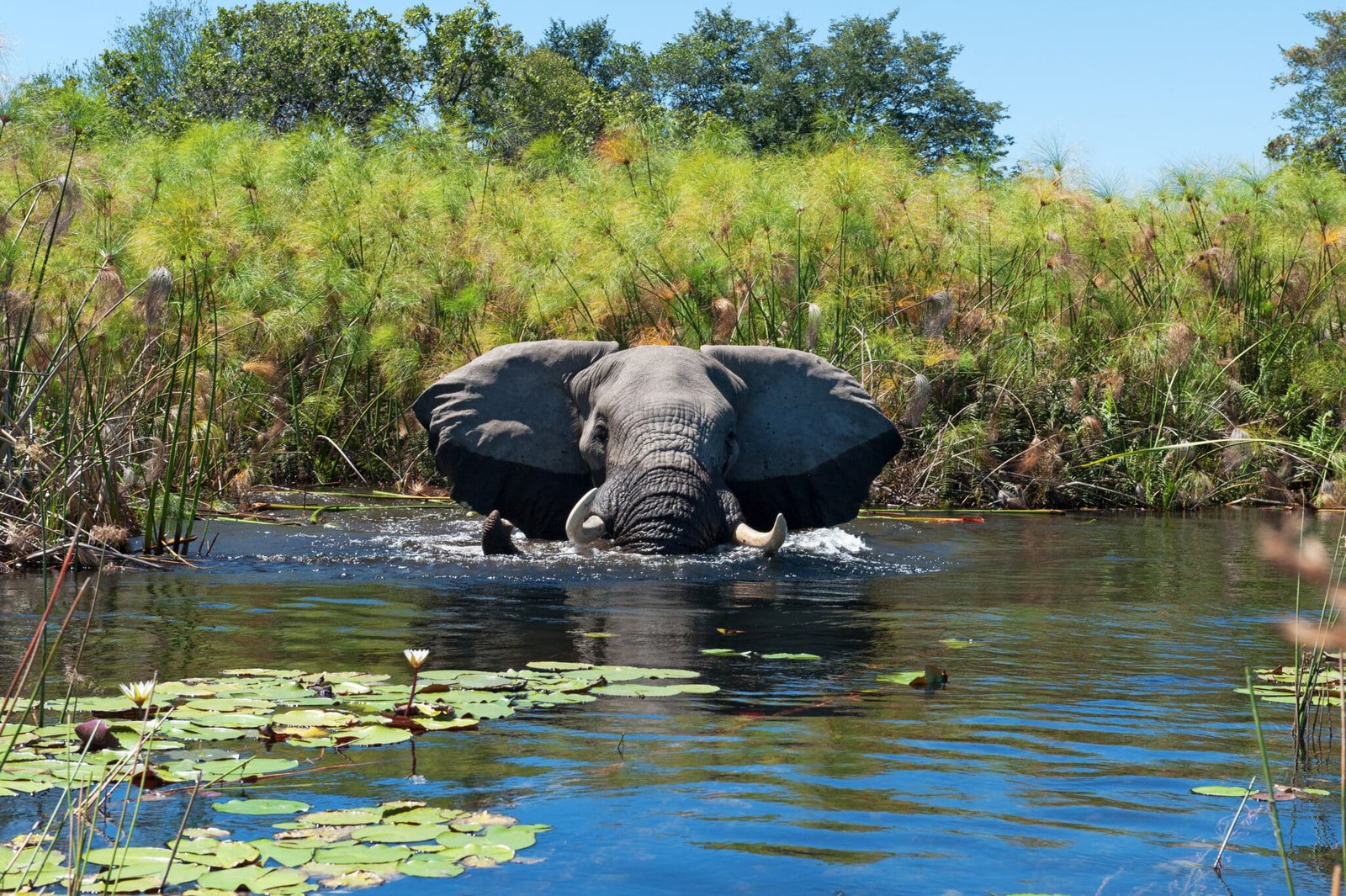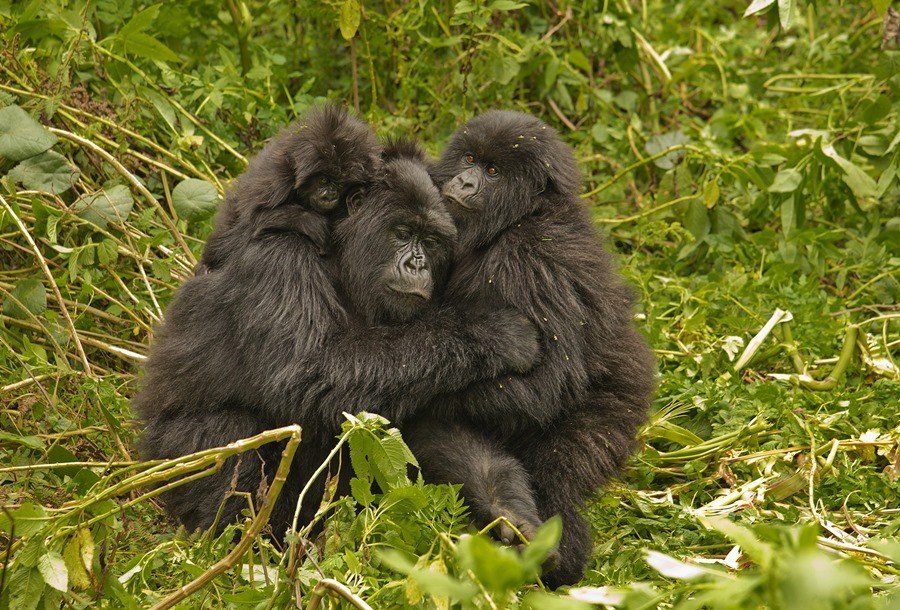Tourism in Bwindi Impenetrable National Park has had a profound and positive impact on the local community. Located in Uganda, Bwindi is renowned for its rich biodiversity and being home to nearly half of the world’s mountain gorilla population.
The influx of tourists has not only generated economic growth but also fostered community development, conservation efforts, cultural preservation, and educational opportunities. While challenges exist, sustainable tourism practices and community involvement have played a pivotal role in ensuring the enduring benefits of tourism in Bwindi.

Here are some ways in which tourism has benefited the local community in Bwindi:
Economic growth:
Tourism has played a significant role in driving economic growth in the community of Bwindi. Here are some specific aspects of economic growth resulting from tourism:
- Job creation: The tourism industry in Bwindi has created numerous employment opportunities for the local community. People are employed as tour guides, park rangers, drivers, hotel and restaurant staff, craft makers, and in various other tourism-related roles. This has helped to reduce unemployment rates and provide steady income for individuals and their families.
- Small business development: The presence of tourists in Bwindi has led to the establishment and growth of small businesses. Local entrepreneurs have started guesthouses, lodges, restaurants, souvenir shops, and other enterprises to cater to the needs and preferences of tourists. These businesses not only generate revenue but also create additional employment opportunities for the community.
- Income generation: Tourism has provided a source of income for many individuals and households in Bwindi. Local residents who offer services and products to tourists, such as guided tours, cultural experiences, and handicrafts, can earn a livelihood and improve their financial well-being. The income generated from tourism has a multiplier effect, as it circulates within the local economy, benefiting other sectors as well.
- Infrastructure development: The revenue generated from tourism has been utilized for the development of infrastructure in Bwindi. This includes the construction and improvement of roads, bridges, schools, healthcare facilities, and water supply systems. The presence of tourism has attracted investment in these areas, leading to better infrastructure and improved living conditions for the local community.
- Ancillary services: Tourism also stimulates the growth of ancillary services in Bwindi. These include transportation services, such as taxi services or car rentals, as well as retail shops, supermarkets, and communication facilities. The demand from tourists for these services creates business opportunities for local entrepreneurs, contributing to economic growth.
- Increased income for farmers: Agriculture is a significant source of livelihood for the community in Bwindi. With tourism, local farmers have an expanded market for their produce, as hotels and restaurants require fresh food supplies to cater to tourists. This creates a positive economic impact by increasing income for farmers and encouraging agricultural productivity.
Overall, tourism has brought economic growth to Bwindi by generating employment, fostering entrepreneurship, improving infrastructure, and creating opportunities for income generation. It has helped diversify the local economy, reduce poverty, and enhance the overall well-being of the community.
Community development:
Tourism has contributed to community development in Bwindi in several ways. Here are some examples of community development initiatives resulting from tourism:
- Infrastructure development: The revenue generated from tourism has been used to improve infrastructure in the community. This includes the construction and maintenance of roads, bridges, schools, healthcare facilities, and water supply systems. Better infrastructure enhances the quality of life for residents, facilitates access to essential services, and creates a conducive environment for further development.
- Education and healthcare: Tourism revenue has been allocated to the improvement of educational and healthcare facilities in Bwindi. Schools have been constructed or renovated, providing better learning environments for children. Additionally, healthcare centres and clinics have been established or upgraded, leading to improved access to medical services and better healthcare outcomes for the community.
- Skills development and training: Tourism has provided opportunities for skills development and training within the community. Local residents have been trained as tour guides, hospitality staff, and in other tourism-related roles. These training programs enhance their employability and enable them to participate actively in the tourism industry. Furthermore, vocational training in areas such as handicraft production and cultural experiences has empowered community members to develop their entrepreneurial skills and generate income.
- Cultural preservation and promotion: Tourism has played a role in preserving and promoting the cultural heritage of the community. Visitors to Bwindi engage in cultural experiences, such as traditional dances, craft demonstrations, and village visits. These interactions create awareness and appreciation for the local culture, while also providing income-generating opportunities for local artisans and cultural groups. The community takes pride in its traditions and actively preserves them, ensuring their sustainability for future generations.
- Community-based tourism initiatives: Tourism in Bwindi has seen the development of community-based tourism initiatives. These projects involve local communities directly in tourism activities, such as home-stays, guided walks, and cultural performances. Community members are actively engaged in planning and managing these initiatives, which not only provides them with economic benefits but also empowers them to take ownership of tourism development. Revenue generated from these initiatives is often reinvested in community development projects.
- Environmental conservation and sustainable practices: Tourism has created awareness among the community about the importance of environmental conservation. The presence of tourists and their interest in the local ecosystem, particularly the endangered mountain gorillas, has led to increased support for conservation efforts. Community members have become actively involved in anti-poaching measures, reforestation projects, and sustainable farming practices. These initiatives contribute to the preservation of Bwindi’s natural resources and ensure the long-term sustainability of tourism.
In summary, tourism has contributed to community development in Bwindi by supporting infrastructure development, improving education and healthcare, fostering skills training, preserving and promoting local culture, empowering community-based tourism initiatives, and encouraging environmental conservation. These initiatives have had a positive impact on the overall well-being and quality of life of the local community.
Conservation efforts:
Tourism has played a significant role in supporting conservation efforts in Bwindi. Here are some examples of how tourism has contributed to conservation in the area:
- Funding for conservation: Revenue generated from tourism activities, such as park entry fees, permits, and accommodation, has been a vital source of funding for conservation initiatives in Bwindi. These funds are used for various conservation efforts, including anti-poaching measures, habitat restoration, wildlife monitoring, and community engagement programs. Tourism revenue directly contributes to the financial sustainability of these conservation projects.
- Gorilla conservation: Bwindi Impenetrable National Park is renowned for its population of endangered mountain gorillas. The presence of tourists and their interest in gorilla trekking has provided a strong incentive for the protection and conservation of these iconic animals. The revenue generated from gorilla permits is instrumental in funding conservation activities focused on the preservation of gorilla habitats, anti-poaching efforts, and scientific research to better understand and protect the gorilla population.
- Community involvement and awareness: Tourism has fostered community involvement and awareness in conservation efforts. Local communities living around Bwindi have realized the economic value of the gorillas and the importance of protecting their habitat. They have actively participated in community conservation initiatives, such as joining ranger patrols, reporting wildlife sightings, and engaging in sustainable practices. Tourism has been instrumental in educating and raising awareness among the community about the significance of biodiversity conservation and the benefits it brings to their livelihoods.
- Sustainable tourism practices: Tourism operators and authorities in Bwindi have implemented sustainable tourism practices to minimize negative impacts on the environment and wildlife. These practices include strict visitor guidelines during gorilla trekking, limiting the number of permits issued per day, maintaining a safe distance from gorillas, and promoting responsible tourism behaviors. By adhering to these practices, tourism activities can be conducted in a manner that minimizes disturbance to the gorillas and their habitat, ensuring their long-term conservation.
- Research and monitoring: The presence of tourists and the interest they show in Bwindi’s wildlife, particularly gorillas, has facilitated research and monitoring efforts. Researchers and conservationists have been able to study the gorillas, monitor their population dynamics, track their behavior, and assess the health of their habitat. The data collected through such research activities helps in making informed conservation decisions and developing strategies for the long-term survival of the gorillas.
- Conservation-focused partnerships: Tourism has encouraged partnerships between various stakeholders, including government authorities, conservation organizations, local communities, and tourism operators. These partnerships work together to develop and implement conservation strategies, share knowledge and resources, and ensure the sustainability of tourism activities. Collaboration among these entities is vital for the effective management and conservation of Bwindi’s unique biodiversity.
In summary, tourism has been instrumental in supporting conservation efforts in Bwindi by providing essential funding, raising awareness, involving local communities, implementing sustainable practices, facilitating research and monitoring, and fostering partnerships.
The revenue and interest generated by tourism have contributed significantly to the preservation of Bwindi’s biodiversity, particularly the endangered mountain gorillas, and the protection of their habitat.
Cultural preservation:
Tourism has provided a platform for the preservation and promotion of local culture. Visitors often engage in cultural experiences like traditional dances, craft demonstrations, and village visits, which encourages the preservation of indigenous traditions and knowledge. This not only strengthens the community’s identity but also generates income for local artisans and cultural groups.
Education and awareness:
Tourism has created opportunities for education and awareness about the environment and wildlife conservation. Local communities are educated about the importance of protecting the gorillas and their ecosystem, leading to a greater understanding of sustainable practices. This knowledge is then shared with visitors, fostering a sense of environmental responsibility among tourists.
Alternative livelihoods:
Tourism has offered alternative income sources for communities previously dependent on activities like farming or logging, which may have had negative environmental impacts. By engaging in tourism-related activities, such as handicraft production or community-based tourism initiatives, locals have diversified their income streams and reduced their reliance on unsustainable practices.
In conclusion, tourism in Bwindi has had a positive impact on the community by fostering economic growth, supporting community development initiatives, contributing to conservation efforts, and preserving local culture.
It has created employment opportunities, improved infrastructure and access to services, generated revenue for conservation projects, and empowered the community to take pride in their cultural heritage. While challenges exist, sustainable tourism practices and community involvement are crucial for ensuring the continued positive impact of tourism in Bwindi.



